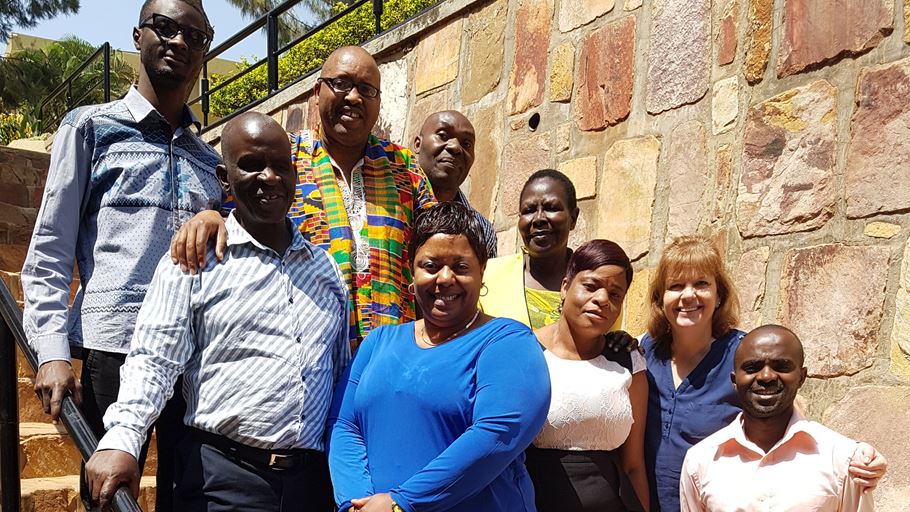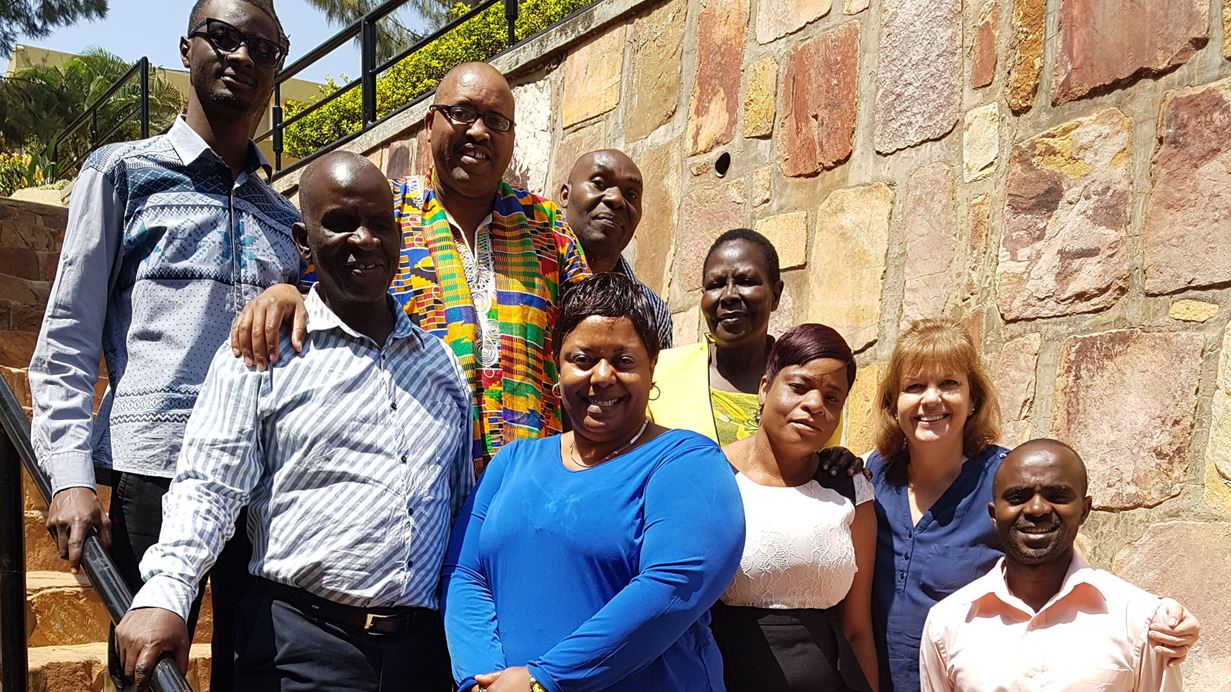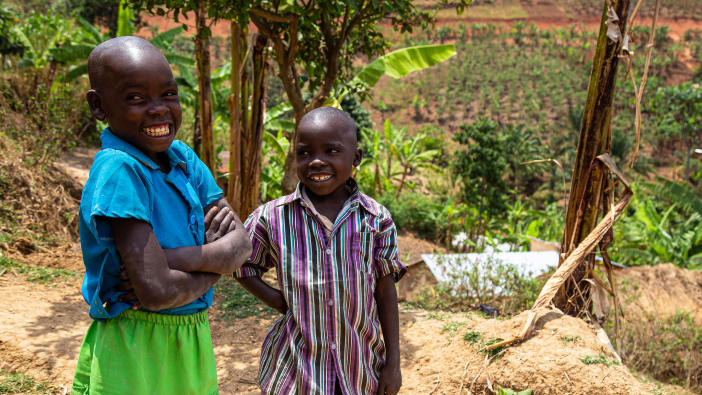How beautiful on the mountains are the feet of those who bring good news, who proclaim peace, who bring good tidings, who proclaim salvation, who say to Zion, “Your God reigns!” (Isaiah 52:7)
Isaiah prophesied hope to a people longing for rescue – desperate for peace. How beautiful the feet of those who would carry the news of it. He was speaking to a people facing fear and oppression. For many across huge swathes of East Africa right now, the fear and oppression has a different face – that of extreme drought and hunger caused by the climate crisis. Communities are being robbed of food and livelihoods, pushing millions towards famine.
A violent climate
And, as the hunger drives people further and further into desperate territory, the violent rivalry for livestock, water and grazing lands has seen an escalation in conflict in places like northern Kenya, where Allan Waihumbu, a former veterinary doctor and a graduate of Tearfund’s Inspired Individuals programme, is working to help build peace.
The situation in the region is complex, and Allan spoke to us about how the climate crisis is making it so much worse. ‘Conflict there is fueled by shortages of resources,’ Allan says. ‘The source of conflict is a fight for food and pasture for livestock. So, when the resources are dwindling or depleted – like at the moment – it becomes even more fierce conflict.’
News reports show us the increasingly desperate hunger crisis, along with an escalation in the scale and severity of violence associated with cattle rustling in the region. It’s not only food and water that are desperately needed, but a message of peace and reconciliation.
Building peace
Allan’s journey as a peacebuilder started in 2007 when, having recently graduated, he was posted to a pastoral community. He hadn’t been there long when the post-election crisis happened, with violence that resulted in the deaths of more than a thousand people. Allan ended up doing relief distribution. He tells us, ‘In the process of relief distribution, when I saw all the suffering women and children, I started to develop an urge to address the needs of broken hearts.’
Working through local churches, Allan got involved with a Tearfund-supported programme running training for women who had faced traumatic experiences. He says it was during that training that he started to focus more on the healing and reconciliation ministry. Allan, having experienced the trauma of an attack himself, also found healing through the training – as did other facilitators. They found so much value in the programme that, when its funding ended in 2011, Allan and seven others set up their own organisation called Way of Peace to continue the work.
Clean roots
It started as a very small initiative, still working through local churches, to reach people who had been affected by the violence – people who had lost their loved ones or their property or who had been forced to flee their homes.
The restoration message of Way of Peace, which is rooted in a process of deep healing and meaningful forgiveness and reconciliation, sits right at the heart of what Tearfund cares about. In 2017, Gladys Wathanga, Tearfund’s Country Director in Kenya, invited Allan to be a part of Tearfund’s Inspired Individuals programme which helps equip and connect people like Allan to make their ministries as effective as possible.
‘We run workshops called Healing Hearts Transforming Nations,’ Allan explains. It’s based in an understanding that pain – often as a result of conflict – is at the root of more conflict. ‘It’s a curriculum that was developed in 1996 in Rwanda, post genocide... One part of it is helping people who have gone through traumatic experiences of conflict to heal – and so when they heal, they are likely to put a stop to the cycle of violence and conflict. But, the bigger side of the healing is that it helps the younger generation not to feed from the old roots. So, speaking positively about neighbours and thinking positively about others and other ethnic groups. That helps in creating a new generation that has much cleaner roots.’















